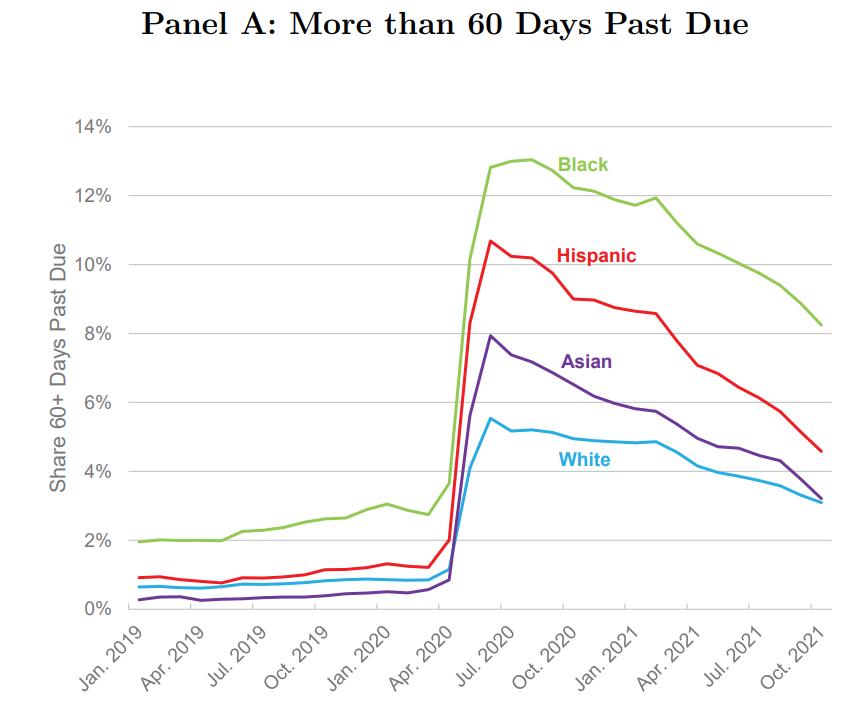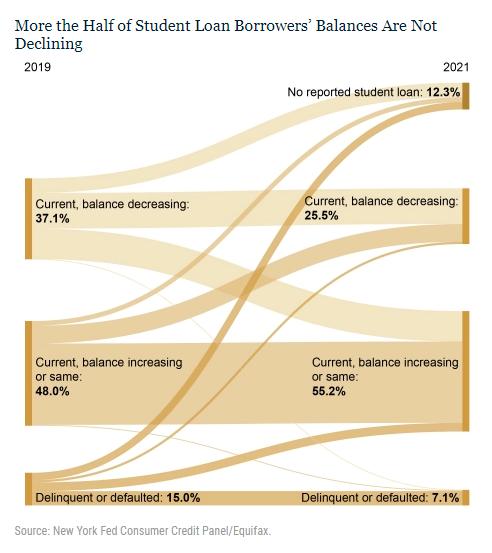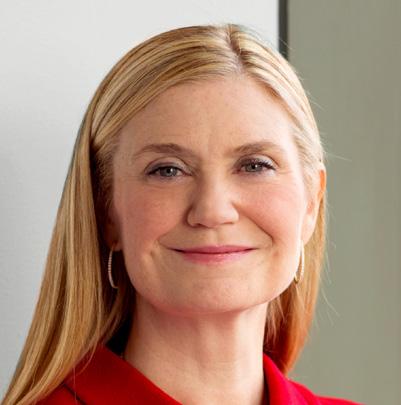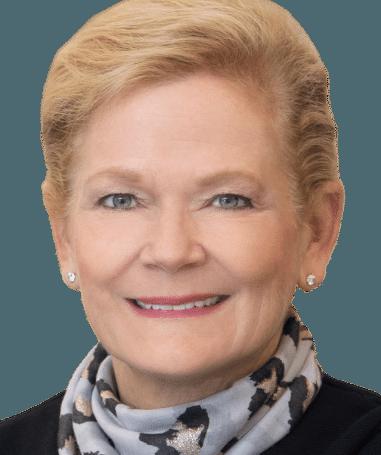




Lock in low-cost funding now with flexible terms and tailored structures.
With interest rates rising, now is a good time to analyze your bank's cost-of-funds and to explore alternative sources of funding.
Whether your bank seeks fixed- or floating-rate pricing, overnight or term options, or millions or billions of dollars, funding from IntraFi® is the answer. IntraFi is a reliable funding source—one of the largest in the U.S. Funding from IntraFi counts as deposits, not borrowings, and is available without collateralization, credit lines, or stock purchases, enabling your bank to use the entire value of the purchased funds for revenue-generating opportunities.

Get in touch at (866) 776-6426, option 3, or contactus@intrafi.com
IntraFi.com
Use of IntraFi Network Deposits and IntraFi Funding is subject to the terms, conditions, and disclosures in the program agreements, including the IntraFi Participating Institution Agreement. Limits apply and customer eligibility criteria may apply. A list identifying IntraFi Network insured depository institutions at which funds may be placed through IntraFi Network Deposits may be found at https://www.intrafi.com/network-banks. As provided in the applicable Deposit Placement Agreement, the depositor may exclude particular insured depository institutions from eligibility to receive the depositor’s funds.Network Deposits and the IntraFi hexagon are service marks, and IntraFi, ICS, CDARS, and IND are registered service marks, of IntraFi Network LLC.
Media, a global provider of software for digital out-of-home (DOOH) and MFour,a conductor of behaviordriven survey research, released survey findings on consumers’ financial services preferences and behaviors – from where and how consumers prefer to bank and spend money, to the top incentives they care about.
Specifically, the study reveals that: While many consumers prefer to open new credit cards online (60%) via web or app, adults between the ages of 18 and 24 are more likely to apply for a credit card in person (35%) than adults that are 25 or older (14%). Younger consumers are also more likely to apply for loans in person, compared to adults ages 25+ (49% vs 37%).
“Despite popular belief, Gen Zers aren’t married to doing everything online,” said Lauren Lawhead, director of analytics at Vistar Media. “Given this group is new to financial processes like applying for a loan and new credit card, it makes sense that they value inperson experiences since it fosters more trust and credibility when evaluating
big financial decisions. This presents a significant opportunity for brands to incorporate DOOH geotargeting tactics to reach this coveted audience, along with messaging focused on desires such as bank proximity and financial expertise through leveraging the robust dynamic creative capabilities that exist today.”
Across all age groups, more than half of consumers would prefer to speak with a bank employee (61%) or open an account (55%) in person. On the other hand, the majority of consumers would prefer to deposit checks (60%), transfer money from one account to another (83%), or apply for a credit card (68%) online via a mobile app or website.
One in three (34% of) consumers stated they are likely to apply for a new credit card this year, while younger adults ages 18 to 34 are more likely to do so (39%) vs. 26% of adults ages 45 and older.
When considering a new credit card, consumers said that the type of rewards offered and low interest rates are the two most important factors overall (64% for each), followed by sign up bonuses (44%) and granting larger lines of credit (33%). The most prefered rewards type
that consumers care about is by far cash back (70%), followed by travel (15%) and grocery store (11%).
"With rewards being one of the most important factors for consumers of all ages when choosing credit cards, financial services advertisers can utilize DOOH to showcase offerings while consumers are engaged in highly related activities,” said Leslie Lee, senior vice president of marketing at Vistar Media. “The contextual relevance of DOOH is a perfect fit to match promotions with moments when rewards might be top of mind, such as showcasing cash back rewards on screens in grocery stores, malls, gas stations and retail or at hotels and airports for travel rewards.“
Further, consumers are willing to spend up to an average $284 on annual credit card fees, with adults ages 18- to 24-years-old willing to spend up to $421 on average and adults ages 45+ willing to spend up to $126 on average.
Lee added: “Young consumers’ willingness to pay higher credit card fees makes this audience highly valuable for financial advertisers to reach through OOH, particularly with their propensity for in-person financial experiences.”
Vincent M. Valvo vvalvo@ambizmedia.com
EDITORIAL DIRECTOR
Christine Stuart EDITOR David Krechevsky
SENIOR EDITOR
Keith Griffin
HEAD OF MULTIMEDIA
Mike Savino
STAFF WRITERS
Katie Jensen, Steven Goode, Douglas Page, Sarah Wolak
Beverly Bolnick bbolnick@ambizmedia.com
DIRECTOR OF STRATEGIC GROWTH
Alison Valvo
DESIGN MANAGER
Meghan Hogan
GRAPHIC DESIGN MANAGERS Christopher Wallace, Stacy Murray
DIRECTOR OF EVENTS Navindra Persaud
UX DESIGN DIRECTOR
William Valvo
HEAD OF CUSTOMER OUTREACH AND ENGAGEMENT
Andrew Berman
MULTIMEDIA SPECIALISTS
Tigi Kuttamperoor, Matthew Mullins, Angelo Scalise
PROJECT MANAGER
Julie Carmichael
MARKETING & EVENTS ASSOCIATE Melissa Pianin
ONLINE ENGAGEMENT SPECIALIST
Kristie Woods-Lindig
Phone: (860) 719-1991 | info@ambizmedia.com
The cannabis industry remains largely untapped by the lending industry. According to the U.S. Treasury, only about 550 banks and 200 credit unions across the country are actively providing banking services to a business that the federal government still considers illegal under the Controlled Substances Act.
One of those banks willing to take a shot is Needham Bank based in Massachusetts. It’s the first federallychartered financial institution in the Commonwealth to get approved by the Federal Reserve Board to provide banking service to marijuana related businesses.
“We’ve been looking at the industry for quite a while,” said Joe Campanelli, CEO and president of Needham Bank. “It’s a multibillion dollar industry that exceeds liquor (revenue).” The bank closed two multimillion dollar construction loans recently, and plans for more are on the horizon.
Bank officials declined to discuss the approval process or regulatory exams, saying only that “we value our relationship with regulators and follow their guidance related to exams.”
In August Needham officials announced that the lender, which created a specialized banking division, had closed a $10 million-plus loan with Bostica LLC, a premium cannabis cultivator and manufacturer of cannabis products.

The company will use the financing to complete construction of a 60,000 square-foot cultivation and manufacturing facility in a refurbished industrial building in Lynn, where officials expect to employ about 80 people. Needham also provided working capital to support Botanica’s operations.
James Daley, director of structured finance for Needham Bank, said revitalizing dormant industrial parks, and spurring more development is an important aspect of these types of projects.
“It transformed the block,” Daley said.
According to Needham officials, once completed, the facility will be the largest, most technologicallyadvanced and energy-efficient indoor marijuans cultivation facility in Greater Boston, and will include a 35,000 square-foot canopy for cannabis to provide ideal growing conditions. The company expects to open the facility in early 2023.
“Obtaining this loan from Needham Bank allows us to complete construction and equipping of our cannabis facility, ultimately supplying premium-
quality products to meet Massachusetts' growing demand,” Allen Schweitzer, Bostica’s chief financial officer said in a statement. “It’s been a pleasure working with the Needham Bank team because they understand the particular intricacies of lending to this specialized industry.”
In early September, Needham also announced the financing of another loan to Michigan-based Glorious Cannabis Company, which is building a 30,000 squarefoot cultivation and processing facility in Uxbridge that will feature 12,000 square-feet of canopy and a 9,000 square-foot area for processing marijuana.
Sam Lteif, CEO of Glorious Cannabis Company, said in a release that working with Needham Bank’s team made the expansion into the state possible.
“Massachusetts is an exciting, up and coming market, and we can’t wait to bring Michigan’s best to a new state,” Lteif said.
Officials said these loans were part of the first group of loans the bank made in the cannabis field.
Campanelli said the cannabis industry is unique and that, even with the eventual blessing of the federal government, lenders will need to understand it from “seed to sale” to avoid running into issues. Aside from enhanced due diligence on private investors and borrowers - even on small deals - there are differences between growing indoors and outdoors, the consumable market (edibles) could lead to FDA exposure, the ever-present concern about mold, increasing competition that could lead to commodity risk and the age old issue of supply and demand.
The Cannabis Business Times reported that in August Oregon’s adult-use cannabis flower prices had hit an all-time low at retail and remained near an all-time low at wholesale, “displaying no indications for a meaningful comeback anytime soon,” despite a statewide moratorium on issuing new licenses to combat a crowded market place.
In Michigan, where there are nearly 1,000 shops that sell marijuana and the number continues to grow, the purchase price continues to drop as well, according to Bridge Michigan, a non-profit news organization. Smaller growers are asking the state to place a moratorium on the number of licenses granted and cap growers at 10,000 plants amidst allegations that larger growers are trying to drive down prices and drive smaller operations out of business.
And in Pennsylvania, multi-state medical marijuana companies - in anticipation of federal legalization - are buying out smaller independent operations that are struggling and laying employees off, wrote MJBizDaily, an online cannabis business media outlet.
“It’s not for the faint of heart,” Campanelli said of cannabis banking.
At the inaugural Business of Cannabis Conference and Expo in September, panelists from state and local governments, banking, agriculture, investment, legal, entrepreneurial and cannabis industries gather to discuss the state of the state’s ennabismerging cannabis industry
The event included a segment with three business people and the founder of a hemp farm that was excluded from participation in the state’s cannabis business. The topic was a discussion about financing options.
“It’s time to be creative, winter has come to the capital markets,” said Jeanne M. Sullivan, co-founder and CIO of the Arcview Collective Fund. “But if you’re creative you can get the wallet out of investors pockets.”
Sullivan also cautioned cannabis operators looking for private funding that they shouldn’t over- value their company to potential investors or balk at giving up equity to secure investors.
“Understand the numbers and you better have a good valuation or you will be skinned,” said Sullivan, who also added that she was upset that the country still has not figured out a way to create banking opportunities across the board.
“I resent that we have these problems and a 50-state fiefdom,” she said. “Let’s empower the banks.”
Peter Su, senior vice president of Green Check Verifiied, told the audience that there is a problem in the cannabis space and that is that the typical business has no collateral since the license and inventory can’t be held.
“And even when capital is available it’s a private lender who is charging 15-20% on loans. We’ve heard the horror stories,” Su said, adding that there are more banks stepping up to do real estate loans at 2 or 3 points above prime.
Purchasing real estate comes with its own difficulties as each of the state’s 169 towns has its own rules about what can be built and where. Some towns have also voted to ban cannabis operations in their limits and others have strict guidelines regarding cannabis operations near schools.
Melissa Maranda, executive vice president and COO of Lighthouse Business Solutions, a subsidiary of GFA Federal Credit Union, said that less than 10% of banks are still willing to step into the cannabis space because of fears about prosecution and that her company is doing some real estate and equipment lending, as well as looking for private partnerships.
“We’re trying to eat this elephant, so to speak, one bite at a time,” she said. “I wish I had a better story to tell, but we’re getting there.”
While Needham Bank is bullish on the burgeoning cannabis industry, they are moving forward cautiously. The loan-tovalue ratio still stands at 65/35, as opposed to more standard rates of 80/20 or 90/10 on more traditional loans because there is still a higher risk factor and differing levels of business sophistication among potential borrowers.
But the bank’s interest rates are half what private investors were charging, Campanelli said, and Needham can also offer traditional loan products to the companies and personal banking opportunities to their employees, who have historically had a difficult time qualifying for loans because they didn’t file W-2 forms..
Campanelli, who likened the current state of the cannabis industry to the rise of craft beer over the last several years, said there are also benefits beyond the bank’s bottom line, from revitalizing long-vacant industrial parks to reducing crime and curtailing black market activity associated with the illegal marijuana business.
But still, he said, it’s important to be careful.
“A lot of people made money in this business and a lot of people lost money,” he said.
The Federal Reserve Board, at a meeting in February, placed an emphasis on passage of the SAFE Act or similar legislation facilitating a framework for financial institutions to transparently bank cannabis businesses where the activity is permitted under state law would help banks compete with credit unions and nonbank providers
already supporting this space.
However, the issue may not be as urgent among voters or members of Congress.
According to a September Brookings Institution poll, 68% of Americans favor cannabis reform and legalization, but the topic has never broken into the top 20 of their most important issues. As a result, congressional officer holders and candidates aren't compelled to push the issue.
According to the Brookings poll, more than 80% of Congress people or candidates engaged in primaries in 2022 did not even mention cannabis reform in their campaign platforms and less than 14% said they supported legalization/decriminalization.
John Hudak, Brookings’ deputy director of the Center for Effective Public Management concluded that, while cannabis as a political issue has gained traction in the last 25 years and state lawmakers have enacted changes to cannabis laws, “progress at the federal level bumps up against a stark reality.”

The true motivator for a member to take up or change position, Hudak wrote - “whether voters hold their feet to the fire of an issue - has not yet become a reality in the vast majority of Congressional races across the United States.”
In 2021 the U.S. House passed the SAFE (Secure and Fair Enforcement) Banking
Act for the sixth time. Although the U.S. Senate continues to decline to take it up, bipartisan support continues to grow.
SAFE would protect banks and financial institutions who choose to service cannabis-related businesses.
Earlier this year, Congress also passed the MORE (Marijuana Opportunity Reinvestment and Expungement) Act, which has been taken up by the Senate and is currently with that body’s finance committee. The MORE Act would decriminalize marijuana and remove it from the list of scheduled substances under the Controlled Substances Act. It would make small business loans available to cannabis-related legitimate businesses and their service providers, and enact various criminal and social justice reforms related to cannabis, including the expungement of prior convictions.
Even with the eventual blessing of the federal government, lenders will need to understand it from ‘seed to sale’ to avoid running into issues
Don’t miss the opportunity to learn about the future of banking at the Northeast’s largest and most exciting banking show. BankWorld will provide you with essential educational sessions, interactive panels, cutting-edge exhibits, countless networking opportunities and so much more — all with an eye to giving you an edge against the competition.
Banking Northeast readers like you can attend for free by using the code BNEFREE.

JAN 13 2023 www.nebankworld.com
Complimentary registration available only to employees of retail banks and credit unions. Show producers reserve the right to determine final eligibility.
KeyBank, one of the U.S.’s largest financial services companies, has modernized its non-real estate consumer lending process with Oracle. KeyBank provides deposit, lending, cash management, and investment services to individuals and businesses in 15 states through a network of 1,000 branches. With Oracle Banking Originations, the bank can now service loan accounts in real-time from the initial application through to payments and collections, helping eliminate delays, and improve customer service.
“At KeyBank, we understand you cannot ‘kick the can’ on modernizing legacy banking systems if you wish to remain competitive, foster innovation, and maintain operating costs,” said Kim Snipes, KeyBank’s chief information officer of consumer and digital. “Financial institutions must implement modern, modular API-driven real-time systems. Oracle provided the foundation we needed to accelerate our digital transformation efforts across our consumer-facing digital channels and key enterprise operations. With Oracle, we were able to successfully move an active banking portfolio to a new system without interruptions to our customers.”
KeyBank has worked closely with Oracle since the launch of its consumer digital banking platform in 2017. Since then, it has expanded its digital servicing capabilities into originations using Oracle Banking technology, which provides the orchestration and modern underwriting workflow needed to support real-time decisioning for consumer deposit and credit card
accounts. With that enhancement, KeyBank customers are now able to open a checking, savings, or credit card account in as little as five minutes. To bring this modern digital experience to more product areas, KeyBank recently expanded its use of Oracle to include its non-real estate loan servicing and collections.
KeyBank’s legacy non-real estate loan system was difficult to maintain and relied on manual processes, putting a strain on its back-end operations. After acquiring First Niagara Bank in 2015, KeyBank needed a way to bring together the two firms’ different loan servicing, collections, and recovery systems. To address that challenge, KeyBank and Oracle worked together to implement the Oracle Banking Originations and its supporting applications for non-real estate servicing and collections while addressing stringent US regulations.
KeyBank’s real-time loan servicing capabilities now provide complete, straight-through processing and integrated workflows that help reduce operating costs. Oracle’s modern user interface streamlines the back-office experience and the shift from batch processing to realtime data processing helps ensure the collections team is not contacting a customer who may have recently completed a payment.
settled through the FedACH Service to help the organization advance its business strategy and day-to-day ACH operations.
“In recent years, ACH transactions have grown in both volume and total value,” said Keith Melton, senior vice president and head of product management, Federal Reserve Financial Services. “As a result, it’s more important than ever before for financial institutions to analyze their ACH payment trends to help inform operational, risk management and strategic decisions. The FedPayments Insights Service provides a comprehensive, easy-to-access view of an institution’s daily and historical FedACH activity, including government and commercial transactions.”
This service, accessed through the FedLine Web® and FedLine Advantage® Solutions, can track transactions settled through FedACH for an individual originator, a single routing transit number (RTN) or family of RTNs. The FedPayments Insights Service can generate both data and visual reports on payment trends and activity, such as volume, reversals and return rates. Historical data includes up to two years of detailed information and six years of summarized information.
The new FedPayments Insights Service can be used independently or as a complement to the FedPayments Reporter Service.
Federal Reserve Financial Services today launched the FedPayments Insights Service, a business and analytics tool that generates reports on a financial institution’s payments
When used in combination, certain items of interest identified through the FedPayments Insights Service’s analysis tools can be generated automatically in the FedPayments Reporter Service on a fixed schedule or on demand for various date ranges and customer accounts. The FedPayments Reporter Service also


automates report distribution within the financial institution and/or out to its business customers.
industrial ecosystem, from the design of customer journeys to the implementation of technical solutions, guaranteeing an optimal user experience.
With Algoan, SBS is taking a step further in its ability to support banks and credit institutions in their ambitions to offer market-adapted and ethical credit offers.
Sopra Steria, via Sopra Steria Ventures, has invested in Algoan, the leading French fintech in APIbased credit scoring. Sopra Banking Software (SBS), a key technology partner to more than 1,500 financial institutions, will leverage this industrial partnership to accelerate its own capacity to offer more inclusive and responsible access to credit.

With Algoan, SBS can offer its clients the opportunity to enhance their ability to manage credit risk, thanks to a financial behavioral score.
Based on Open Banking and its secure framework, and thanks to the use of cutting-edge technologies in the field of artificial intelligence and machine learning, Algoan offers an alternative scoring model, democratizing access to credit, particularly for profiles that do not meet the classic “stability” criteria.
The aim is to simplify the application process for consumer credit and reduce the “time-to-yes”.
Sopra Banking Software is capable of delivering an end-to-end value proposition thanks to Sopra Steria’s

Thanks to this partnership, SBS consolidates its strategy of platformization based on synergies with the best fintech on the market. Together, they will contribute to enriching SBS’s Open Banking Platform with new use cases enabled by PSD2, such as credit scoring, credit insights, or buy now pay later.
of all Lumin’s user sessions take place in native mobile apps.
Glass UI is a card-based interface used for designing websites, smartphones, web apps, and mobile apps based on transparency (frosted-glass), vivid or pastel colors, and a light border. Among some of the changes to Lumin’s Glass UI are “micro” improvements such as new visual design elements which follow current trends and best practices in today’s fintech app space. These updated design elements feature modern and brandreinforcing gradients for clients, clearer typography, and enhanced visual distinction between account types. User navigation was also retooled to include elevation through Glassmorphic shapes and boundaries that interact with the new gradient backgrounds.

As a part of its commitment to constant improvement and evolution, Lumin Digital (Lumin) has announced new improvements and changes to its User Interface with the introduction of a Glassmorphic Interface (Glass UI) and the launch of its New Form Experience (NFX). These changes will even further positively impact financial institutions and their digital banking users by further enhancing how they are able to access and navigate Lumin’s cloudnative platform.
These improvements to Lumin’s user experience were made with mobile users in mind. On average, over 70%
Lumin’s New Form Experience (NFX) includes improved clarity and definition of form elements, enhancements in components like password fields, visual alerts, account status display, tooltips, and more. Notably, both the new Glass UI and NFX were vetted and tested in partnership with Lumin’s Design Advisory Group, a group of clients that gives input and feedback on current and desired products and services that benefit both the financial institution and end-user through beta testing, user testing and surveys. Many changes were also made to improve ADA compliance, including text-to-speech updates and color palettes distinguishable for those with color blindness.
Amidconcerns about rising inflation, many Americans find credit card rewards useful in helping to ease inflation woes, a Wells Fargo study reveals. With 92% of Americans concerned about rising inflation (59% very concerned, 33% somewhat concerned), nearly half of rewards cardholders (49%) are leaning on their credit card rewards to help offset some of the costs of everyday purchases.
Almost three quarters (71%) of Americans have a credit card that offers rewards, and 45% of rewards cardholders say their credit card usage increased during the pandemic. What’s more, twothirds of rewards cardholders (65%) say

they care about credit card rewards now more than ever.
“The survey data underscores the significance of rising inflation and supply chain issues, and how American consumers have been affected in so many ways—not only their summer vacation plans but also with everyday purchases,” said Krista Phillips, executive vice president, head of Branded Cards and Marketing for Wells Fargo Credit Cards.
The study revealed that Americans are planning vacations, although over half (57%) report a “love-hate” relationship with travel these days. For many (44%) the urge to travel has returned with a
vengeance, with a third (34%) reporting that they are planning to “go big” on their next trip.
Americans are mostly vacationing by car. Two-thirds (66%) say they prefer good old-fashioned road trips over flying with about a third (31%) planning an automobile trip in the next six months, compared to 22% who are planning to fly. Two-thirds (64%) of respondents said they are cutting back on air travel because it is too expensive while some (45%) are cutting back on air travel because of COVID concerns. A quarter (24%) of rewards cardholders used travel rewards to subsidize a vacation this year.
“Our customers tend to focus on rewards as a top credit card preference, and that’s one reason we’re expanding our consumer
Rewards tends to be a top credit card preference among consumers.
portfolio to include more competitive rewards offerings – like the new Autograph Card,” Phillips said.
“It starts with listening to our customers to develop products that align with their lifestyles, and right now many are looking for ways to make the most of their everyday purchases. There is a big opportunity for savvy cardholders to earn rewards on purchases they are already making by using a card like Autograph, which offers unlimited 3X rewards points on top spending categories including at gas stations – a great incentive amid the current gas prices.”
Even though people report using their credit card rewards to offset the cost of everyday purchases, the study found that many do not take full
advantage of their card benefits.
Only half (53%) of rewards cardholders say they focus on highvalue categories when they use their credit card.
Thirty-eight percent of rewards cardholders have not cashed in their credit card rewards or offers this year.
Thirteen percent of rewards cardholders say they don’t really understand how their credit card rewards program works.
“It’s important for consumers to fully understand all of the benefits their rewards card offers in order to make the most of their purchases and to help defray some of the cost of rising inflation,” added Phillips.

After groceries, the top things rewards cardholders use their credit card for is gas, restaurants, and travel/ transit.
The Financial Marketing Awards™ are presented to community banks and credit unions located throughout the six-state New England region. The Financial Marketing Awards™ are the area’s oldest and most respected awards event, saluting the marketing campaigns, community projects and innovative people who’ve raised the bar on bank and credit union marketing and achieved outsanding results.

gala
13, 2023
There is a big opportunity for savvy cardholders to earn rewards on purchases they are already making by using a card like Autograph, which offers unlimited 3X rewards points on top spending categories including at gas stations – a great incentive amid the current gas prices.”


Interest Rates, 2007–Present










Firstrust Bank, based in Pennsylvania, announced that President Timothy J. Abell will become CEO as part of a longplanned executive transition that will ensure business continuity and growth for the region’s largest and strongest full-service, family-owned bank.


Current Board Chairman and CEO Richard J. Green, who has spent his 45-year banking career building Firstrust, will become the executive chairman of the board of directors. His grandfather, Samuel, founded the bank in 1934, and during Richard’s career was privileged to have worked with both his grandfather, and father, Daniel. Richard will remain the owner of the bank.
This planned transition will become effective on Jan. 1, 2023. As Abell becomes CEO, Richard, in turn, will focus more fully on Firstrust’s continued growth as well as the expanding philanthropic work of The Green Family Foundation.


During his tenure as CEO, Green led several successful transformations for Firstrust, including its transition to a full-service commercial bank, the reinvention of Hatch Bank, a subsidiary of Firstrust, into a bank focused on serving the Fintech community, as well as deftly navigating Firstrust through the Great Recession and the Global Pandemic. Read More
Pioneer, a financial institution in New York’s Capital Region, announced the appointment of Thomas Signor as executive vice president and chief administration officer. In that role, he will oversee all bank operations, including deposit and retail loan operations, compliance, risk, information technology, security, and facilities management.

Prior to joining Pioneer, Signor spent 16 years at Kinderhook Bank, rising from internal auditor to executive vice president and chief operating officer. In that position, he provided oversight and management of the operations, retail loan servicing, IT, compliance, electronic banking, and facilities departments. In addition, he served as bank secrecy officer; oversaw construction and fit-up of five new bank branches; researched, recommended and implemented new technology offerings for customers and employees; and developed and led the integration process for the bank’s acquisition of Patriot Federal Bank.
“We are delighted to welcome Tom Signor to the outstanding executive team at Pioneer,” said Pioneer President and CEO Tom Amell. “With recognized expertise and demonstrated leadership in all facets of community banking, a proven record of integrity and innovation, and a strong commitment to impeccable customer service, he will be a tremendous asset to our organization and our clients.”
Camden National Bank in Camden, Maine, announced that James (Jim) Dell’Anno has joined the Bank as Senior Vice President, Director of Mortgage Banking and Consumer Lending. With over 30 years of mortgage banking experience, Dell’Anno brings a breadth of knowledge, strong understanding of operations and a profound commitment to the customer experience.
In his new role, Dell’Anno will be responsible for the vision, direction, and execution of Camden National Bank’s mortgage and consumer lending operations, as well as the sales team. Overseeing operations from start to finish, he will develop a contemporary mortgage strategy utilizing the latest technology to support process improvements to enhance the customer experience.
Throughout Dell’Anno’s career, he’s served in leadership and executive management roles at local and national
banks, as well as independent mortgage companies. He is coming to Camden National Bank after serving as the Vice President Director of Sales at North Easton Bank. He has strong ties to New England, and worked in Maine for seven years at Northeast Bank earlier in his career.
Dell’Anno is actively involved in the community, currently volunteering as a board member of the Mortgage Advisory Board and MA Bankers Association.
Bank of New Hampshire announced the promotion of Deborah Greenwood to retail banking regional manager.

In her new role she will work closely with the managers and oversee strategic operations in Rochester, Dover, Bedford, Manchester, Concord Heights, Claremont, Hillsborough, and Antrim. She will continue to serve as vice president.
Greenwood joined Bank of New Hampshire in 2017 as the assistant vice president of the Concord Heights Office. She is a 2018 graduate of Northern New England School of Banking and 2019 graduate of UNH Next Level Leadership. She is currently a board member for the Pope Memorial SPCA.

The board of directors of the Federal Reserve Bank of New York appointed Marianne Lake, co-chief executive officer of Consumer & Community Banking (CCB) at JPMorgan Chase and a member of the JPMorgan Chase Operating Committee, to the Federal Reserve Board of Governor’s Federal Advisory Council for a one-year term beginning August 2022.
The Federal Advisory Council is composed of one representative of the banking industry from each of the 12 Federal Reserve districts. Council members consult with and advise the Federal Reserve Board on all matters within the board’s jurisdiction. They typically meet four times per year with the board in Washington, D.C., on economic and banking developments, and make recommendations on Fed system activities. Members customarily serve three one-year terms.
At JPMorgan Chase, Lake is jointly responsible for all of CCB and leads Payments, Lending and Commerce. She has been with JPMorgan Chase for 20 years and was previously the chief executive officer of Consumer Lending from 2019 to April 2021. Prior to this, she was chief financial officer from 2013 to 2019. During her first 12 years at the firm, she held roles in the finance organization.

Colleen A. Williams recently joined PSECU as the new business development manager for the credit union’s Central Pennsylvania Region.
Based in State College, Penn., Williams will be responsible for identifying membership growth opportunities in the region as well as working with regional employers to establish exclusive PSECU membership options for their employees.



“We’re excited to welcome Colleen to the credit union,” said Chris Rhine, PSECU regional membership development manager. “Colleen has deep roots in the State College community and extensive experience in sales and cultivating business growth opportunities. There’s no doubt she will help the credit union reach more people and assist with their financial needs.”
Williams comes to PSECU with more than 20 years of experience in sales, marketing and business development. Most recently, she worked for Glenn O. Hawbaker, Inc. in a Business Development role.
It’s a new day for women leaders at banks, mortgage companies, & credit unions. This conference highlights a stellar array of accomplished women leaders from throughout the region, as well as special keynote presenters.
Peruse the agenda of this event specifically designed for all women in the banking, credit union, and mortgage professions throughout New England.


We know you will agree this conference is an amazing opportunity to learn, be amazed, and network as well.

8:00 AM — 8:45 AM
Registration & Networking Breakfast, coffee & tea, mimosas & bloody mary bar
8:45 AM — 9:00 AM
Welcome & Opening Remarks
9:00 AM — 9:45 AM
The world is awash in minority groups and the disenfranchised demanding to be heard. The banking industry – and community banks and credit unions in particular – can play a leading role in bringing about sustainable change that invites everyone to be part of economic liberation. We’ll hear from Malia Lazu, CEO and founder of Urban Labs and former EVP and Chief Experience and Chief Culture Officer at Berkshire Bank, about how each of our institutions can be a voice for economic justice, and tactics that can bring about lasting effect.
Malia Lazu, an award winning, tenured strategist in diversity & inclusion has sparked deep economic development and investment in urban entrepreneurship for over twenty years. In her most recent role as EVP and Regional President at Berkshire Bank, Malia worked to generate wealth for communities by expanding access to capital and spurring economic growth — especially in communities of color that have traditionally been left behind.
9:45 AM — 10:30 AM
For three decades, Lisa J. Oliver has been a distinguished leader in the banking industry across New England and the Midwest. In 2017, Lisa joined The Cooperative Bank of Cape Cod (The Coop), as President and CEO, becoming the first female CEO in its100-year history. In 2020, Lisa was named the Bank’s first Chair of the Board of Directors. Lisa achieved 50-percent gender diversity on the Board of Directors and across the Bank’s senior leadership team, earning recognition from BankDirector Magazine as a top bank nationally for Board diversity.

She will discuss the following:
• Ties back to service, hightouch selling and having great interactions
• Listen to, and solve, client problems
Presented By: Lisa J. Oliver PRESIDENT, CEO & CHAIR, COOPERATIVE BANK OF CAPE COD
To expand The Coop’s mission as a mutual bank, Lisa established The Cooperative Bank of Cape Cod Charitable Foundation Trust in 2018, which has distributed nearly $500,000 since inception to meet the fundamental needs and challenges of people across Cape Cod. In 2021, she oversaw the completion of a $13 million renovation of the Bank’s headquarters, creating a modern workspace to support a culture of employee collaboration, communication and engagement.

10:30 AM — 12:00 PM
Presented By: Malia Lazu CEO & FOUNDER, URBAN LABS
• How not to be a commodityRelational versus transactional business development
• Not selling short-term, single, tactical solution – selling longterm relationship, on-going and strategic solutions
Hands-On Workshop Leadership Through Empowerment: How To Build Women's Working Groups At Your Institution
There is nothing like the power of possibility that women bring to an organization. But how do you ensure that power is being encouraged, strengthened and
given the freedom and support to grow? In this unique workshop, we’ll take attendees through a proven method of building a support structure and feedback culture in your banking organization.
Key Take-away’s you’ll learn:
• How to promote a safe, professional environment for women to connect, grow and empower each other through various program initiatives, events, resources, and tools
• Ways to create a community within your organization to support, network, and grow both personally and professionally
• The opportunity to cultivate new leaders through developing relationships with senior management
• Successes, Challenges, and the many things we’ve learned along the way
12:00 PM — 1:00 PM
Sandra J. Pattie Distinguished Leadership Awards Luncheon
Join us for this special awards luncheon honoring women who’ve made an exceptional mark on the region’s banking industry.
1:00 PM — 1:45 PM
Banks and credit unions have massive amounts of data about their customers, markets, products and services, and using that data should be at the top of your institution’s strategic priorities. But finding the most efficient way to access and use that data effectively continues to be a challenge for many. That’s why this important session—led by Kim Snyder, president of KlariVis, will focus on strategies designed to help you leverage your data more effectively to increase wallet share,
create organizational efficiencies, affirm your place in the market and create new franchise value.
Presented By: Kim Snyder PRESIDENT, KLARIVISKim Snyder is the founder and CEO of Roanoke, Va.-based KlariVis, a proprietary data analytics company designed by bankers for bankers. Prior to founding KlariVis, Kim was the founder and president of KBS Results, a management consulting firm for the financial institution industry. Additionally, she was EVP and CFO of Valley Financial Corporation/Valley Bank, a $900m publicly traded bank in Roanoke, Virginia for 10 years. She was instrumental in the success of the Bank which led to the acquisition by BNC Bancorp at a 173% premium to tangible book value in June 2015.

1:45 PM — 2:30 PM
How to think like a magician to solve seemingly impossible problems.
Doesn’t it sometimes seem that women need magic to get everything done? Or maybe help in cutting through the illusions of work? That’s where Jeanette Andrews has the answers.
Through her years of researching magic history, magician and speaker Jeanette Andrews has developed specific magical methods for utilizing existing tools and strategies in unusual ways. Learn how to
translate this nonlinear problem solving style to your banking career. Andrews teaches a magic effect based on Gestalt psychology and contemporary neuroscience that discusses how perceptual assumptions can help to create a desired effect. The presentation discusses what goes into creating a successful illusion and how perceptual assumptions can help to create a desired effect. Attendees will connect with each other via a fun, shared experience, while learning valuable techniques for crafting perceptions and disrupting expectations.
Presented By: Jeanette Andrews ARTIST & ILLUSIONISTJeanette Andrews is hailed as one of the most innovative illusionists in the world today and she has presented commissioned and sitespecific for The Smithsonian's Cooper Hewitt, the International Museum of Surgical Science, and the Museum of Contemporary Art Chicago. Andrews has staged hundreds of sold-out and standing-room-only performances for Fortune 500 companies, theaters and universities across the United States, including Infiniti, Kraft, Thermo Fisher Scientific, Lyric Opera & Chicago Ideas Week. Her work explores how illusions construct reality and highlights astonishing aspects of everyday life via moments of the seemingly impossible. Illusion is Ms. Andrews’ life’s work and her performances have been praised by the Chicago Tribune, PBS and the New York Times.


For community banks, mortgage companies and credit unions, service to community is one of the strongest marketing initiatives possible. That’s why we’ve also established the Community Champion Awards™. Tell us how your organization created a unique community partnership. Or went beyond the call to aid your community in a special time of need. Or show what your institution’s cumulative effort has meant to your communities.


Nomination Deadline is November 9, 2022
Awards will be presented at the BankWorld gala ceremony, Friday, January 13, 2023
From concept through completion, NES Group is your partner to help you achieve your long-term goals. What makes us different? In-house capabilities to imagine, design, and deliver your project. Let us build off your goals and help you realize your environments' creative potential.

 Needham Bank in Dedham,
Needham Bank in Dedham,